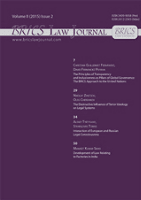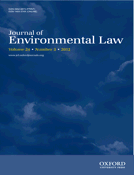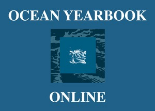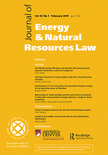
Environmental and Planning Law Journal
Scope & Guideline
Advancing Knowledge in Environmental Law and Planning
Introduction
Aims and Scopes
- Environmental Governance and Regulation:
The journal explores various legal frameworks and regulations that govern environmental protection, resource management, and sustainability practices, focusing on their effectiveness and areas for reform. - Climate Change Law:
A significant focus is placed on the legal aspects of climate change, including litigation, regulatory responses, and the role of law in facilitating or hindering climate action. - Indigenous Rights and Environmental Justice:
The journal addresses the intersection of Indigenous rights and environmental law, emphasizing the importance of recognizing Indigenous knowledge and governance in environmental decision-making. - Biodiversity Conservation and Natural Resource Management:
Research on legal frameworks for biodiversity conservation, protection of natural resources, and the impact of legislation on ecological sustainability is a core area of focus. - Sustainable Development and Economic Regulation:
The journal examines the balance between economic development and environmental protection, analyzing legal mechanisms that promote sustainable practices in various industries.
Trending and Emerging
- Climate Change Litigation and Justice:
There is a notable trend towards exploring the role of litigation in addressing climate change, including discussions on restorative justice and the implications of legal actions on climate policy. - Integration of Renewable Energy in Land Use Planning:
Emerging themes highlight the challenges and opportunities of integrating renewable energy projects, such as agrivoltaics, into existing land-use frameworks, reflecting a shift towards sustainable energy solutions. - Corporate Environmental Responsibility:
The journal is increasingly focused on the legal responsibilities of corporations regarding environmental impact, particularly in relation to sustainability practices and climate risk management. - Indigenous Knowledge and Environmental Management:
A growing recognition of the importance of Indigenous knowledge in environmental management and policymaking is emerging, indicating a shift towards more inclusive governance models. - Technological Innovations in Environmental Law:
There is an uptick in discussions surrounding the implications of technological advancements, such as blockchain, in supporting sustainable development and enhancing regulatory frameworks.
Declining or Waning
- Traditional Land Use Planning:
While still relevant, traditional land use planning themes have seen decreased emphasis as the focus shifts towards more integrated approaches that consider climate resilience and sustainability. - General Environmental Law without Specific Context:
There has been a decline in papers addressing general environmental law without a specific context, as the journal increasingly favors nuanced discussions that connect legal issues directly to current environmental challenges. - Fossil Fuel Regulation:
The discourse surrounding the regulation of fossil fuels has diminished in favor of broader climate change discussions and the role of renewable energy, reflecting a shift in focus towards sustainable energy solutions.
Similar Journals

BRICS Law Journal
Shaping the Future of Law in Diverse NationsBRICS Law Journal is a prominent peer-reviewed publication dedicated to the exploration and critical analysis of legal issues pertinent to the BRICS nations—Brazil, Russia, India, China, and South Africa. Published by LLC V EM PUBLISHING HOUSE, this journal has established itself as an essential resource since its inception in 2014, offering Open Access to foster global research dissemination and collaboration. With an impact factor that reflects its academic rigor, the journal has achieved a commendable Q2 ranking in the field of Law as per the 2023 category quartiles. It is indexed in Scopus, where it holds a rank of #615/1025 in Social Sciences—Law, showcasing its relevance and influence within the legal scholarly community. The BRICS Law Journal aims to address contemporary legal challenges and policy developments in the region, making it a vital resource for researchers, practitioners, and students seeking to engage with the evolving legal landscape and contribute to the discussions that shape the future of law in these diverse nations.

ALBERTA LAW REVIEW
Pioneering discussions in constitutional and social justice.ALBERTA LAW REVIEW, published by the University of Alberta, stands as a key academic journal in the field of law, contributing to the discourse on legal issues and developments in Canada and beyond. With an ISSN of 0002-4821 and an E-ISSN of 1925-8356, this journal has been pivotal since its inception in 1974, providing a platform for legal scholarship that spans a diverse range of topics, from constitutional law to social justice. Although it operates under a traditional subscription model, the journal's illustrious history and rigorously peer-reviewed content affirm its stature in advancing legal research and education. The Alberta Law Review not only serves as a resource for academics and students, but also offers legal practitioners critical insights and analysis pertinent to contemporary legal challenges. With a commitment to enlightening the discourse around law, it is an invaluable asset for anyone engaged in the legal profession or related fields.

International Environmental Agreements-Politics Law and Economics
Navigating the intersection of law, politics, and economics for a greener world.International Environmental Agreements-Politics Law and Economics, published by SPRINGER, is a leading journal dedicated to exploring the intersection of economics, law, and political science as they relate to international environmental agreements. With impressively high rankings in its respective categories—Q1 in Economics and Econometrics, Law, and Political Science and International Relations—this journal serves as a critical platform for rigorous scholarly discourse, addressing pressing global challenges and fostering understanding among policymakers and academics alike. The journal is indexed with an E-ISSN of 1573-1553 and maintains a strong presence in Scopus, excelling in multiple disciplines (ranked #40 in Law, #39 in Political Science, and #128 in Economics). Despite being a subscription-based journal, its comprehensive analyses and innovative perspectives make it an invaluable resource for researchers, professionals, and students committed to advancing sustainable environmental governance. Established in 2003, the journal continues to contribute to the field with engaging content that encourages interdisciplinary collaboration and furthers the study of international environmental treaties.

JOURNAL OF ENVIRONMENTAL LAW
Illuminating the path for legal responses to environmental crises.JOURNAL OF ENVIRONMENTAL LAW, published by Oxford University Press, is a premier academic journal that has been at the forefront of environmental legal scholarship since its inception in 1989. With an impactful focus on the intersection of law and environmental policy, this journal is recognized for its contributions to the understanding of legal frameworks governing environmental issues. The journal holds a distinguished position in the academic community, ranking in the Q1 category for Law and Q2 for Management, Monitoring, Policy and Law as of 2023, indicating its significant influence and reach. It currently holds the impressive Scopus ranks, with a percentile of 85th in social sciences law, reflecting the high citation impact of its published research. The Journal of Environmental Law serves as an essential resource for researchers, legal practitioners, policymakers, and students alike, providing robust analysis and discussion on pressing environmental legal challenges. Although it does not offer open access, the journal ensures broad dissemination of its content through various academic platforms, solidifying its role in advancing knowledge and policy in the field of environmental law.

Ocean Yearbook
Bridging Disciplines for a Sustainable Ocean FutureOcean Yearbook, published by BRILL, is a leading academic journal in the field of maritime law and ocean governance, providing a comprehensive platform for researchers and practitioners in this vital area. With an ISSN of 0191-8575 and E-ISSN 2211-6001, this journal offers valuable insights and critical analyses on contemporary issues affecting the world's oceans, promoting interdisciplinary dialogue among scholars in law, environmental studies, and policy-making. Currently ranked in the Q2 quartile for Law, this journal is positioned among the top-tier publications, reflecting its commitment to academic excellence and relevance. Ocean Yearbook is essential reading for those looking to stay abreast of legal developments and emerging challenges in ocean governance, contributing significantly to policy discussions and academic scholarship worldwide. Its accessibility through subscription, combined with its ongoing commitment to high-quality research, makes it an indispensable resource for students, researchers, and professionals dedicated to understanding and protecting marine ecosystems.

HARVARD ENVIRONMENTAL LAW REVIEW
Fostering Dialogue at the Intersection of Law and NatureHarvard Environmental Law Review, issued by Harvard Law School, stands as a pivotal academic journal devoted to the intersection of environmental law and policy, offering critical insights since its establishment in 1979. With an ISSN of 0147-8257, this journal rigorously addresses contemporary challenges through scholarly articles, case studies, and reviews, thus fostering a rich dialogue among researchers, practitioners, and students alike. Although not an open-access journal, it remains influential, evidenced by its Scopus rankings which position it within the 68th percentile in Law and 35th percentile in Environmental Science categories. Moreover, its classification into the Q4 quartile in Environmental Science (miscellaneous) and Q3 quartile in Law reflects its critical role in advancing knowledge and discourse in both fields. With comprehensive coverage from 1979 to 2023, the journal continues to be indispensable for those seeking to navigate the complex terrain of environmental legislation and policies, underscoring its relevance in scholarly and practical realms.

COMMON MARKET LAW REVIEW
Navigating the Complexities of EU Law and PolicyCOMMON MARKET LAW REVIEW is a premier scholarly journal published by KLUWER LAW INTERNATIONAL, dedicated to the rigorous analysis of legal and policy issues related to the European Union and broader international frameworks. With an ISSN of 0165-0750 and E-ISSN 1875-8320, this esteemed publication holds a distinguished position in the field, recognized in the Q1 category for both Law and Political Science and International Relations as per the 2023 rankings. Its impressive Scopus rankings—#131 out of 1,025 in Law and #151 out of 706 in Political Science—underscore the journal's significance, placing it within the top percentiles of its categories. Operating without open access, the journal presents articles that contribute to scholarly discourse from 1996 through 2024, making it an invaluable resource for researchers, legal practitioners, and students keen on advancing their understanding of European law and regulatory regimes. The COMMON MARKET LAW REVIEW is essential reading for those engaged in rigorous research and the evolution of legal thought in a rapidly changing global context.

Journal of Energy & Natural Resources Law
Connecting Experts in Energy Law and Natural Resource PolicyJournal of Energy & Natural Resources Law, published by Taylor & Francis Ltd, stands as a pivotal source for the examination and discussion of legal issues related to energy and natural resources. With an ISSN of 0264-6811 and an E-ISSN of 2376-4538, this esteemed journal has garnered attention in both the legal and energy sectors, boasting notable rankings with a Q3 category in Energy (Miscellaneous) and a Q1 in Law for 2023. The journal serves as a critical platform for researchers, professionals, and students, offering peer-reviewed articles that delve into contemporary legal frameworks, regulatory evolutions, and policy developments affecting natural resources and energy industries. Additionally, its impressive Scopus rankings, placing it in the 91st percentile for Social Sciences - Law and the 50th percentile for Energy, underline its commitment to high-quality research and its contribution to the discourse surrounding sustainable energy practices and legal innovations. The journal aims to foster dialogue and collaboration among experts in these dynamic fields, making it an essential resource for those engaged in energy law and natural resource management.

Journal of Environmental Planning and Management
Exploring the intersection of policy and environmental science.The Journal of Environmental Planning and Management, published by Routledge Journals, Taylor & Francis Ltd, is a leading academic journal dedicated to advancing the field of environmental science through innovative research and critical analysis. With a robust impact factor and categorized in Q1 across multiple disciplines, including Environmental Science, Geography, and Fluid Flow, this journal holds a prestigious position in the academic community. It serves as a vital platform for researchers, professionals, and students interested in the complexities of environmental management, policy, and planning, promoting insightful discourse on sustainable practices and innovative solutions. Although the journal does not currently offer Open Access options, it remains widely accessible through institutional subscriptions, ensuring that pertinent research reaches a broad audience. Since its inception in 1992, the journal has shown a commitment to excellence, making significant contributions to our understanding of environmental issues and the interplay between human activity and natural systems. The Journal of Environmental Planning and Management invites submissions that not only push the boundaries of existing knowledge but also foster interdisciplinary collaboration in the quest for sustainable development.

Revista Catalana de Dret Public
Empowering Scholars, Enhancing Public DiscourseRevista Catalana de Dret Public, published by the esteemed Escola Administració Pública Catalunya, stands as a pivotal resource in the fields of Law and Public Administration. With its roots dating back to 1985, this open-access journal has established itself as a significant platform for scholarly dialogue and research dissemination, benefiting a diverse audience in Spain and beyond. The journal is currently categorized in the Q2 quartile for Law and Q3 for Public Administration, with Scopus rankings reflecting its critical role in the academic landscape—positioning it at the 37th and 20th percentiles respectively. Furthermore, the Revista Catalana de Dret Public operates under an open-access model, ensuring that vital research is freely available to all, thereby enhancing knowledge sharing and collaboration within these fields. Through rigorous academic scrutiny and a commitment to public discourse, this journal aims to illuminate contemporary issues and foster advancements in public law and administration, making it an essential read for researchers, professionals, and students alike.